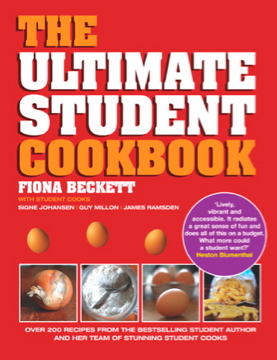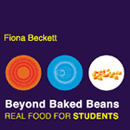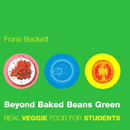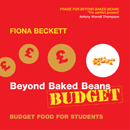publication date: Oct 20, 2008
|
author/source: Nicola Mirams
Think of the student lifestyle and many people jump to the conclusion that having little money means that they will be condemned to eating baked beans and value noodles for the duration of their courses. However, it is possible to eat healthily and cheaply, by learning to live on a budget.
- Know your budget: by working out how much money you have to spend on food each week, you avoid running out of money after a few days after you’ve blown a tenner on a take-away
- Cook for yourself as much as possible
- Use what is in your cupboard – it is easy to spend more than you need to by always buying new things despite having cupboards full of food. Before you go shopping each week, think what you could make out of what you currently have in the fridge or freezer. For inspiration, check out the Student Recipe Finder on this website and cookingbynumbers.com where you can input what ingredients you have and it gives a selection of recipes.
- Similar to the previous point – plan your meals ahead so you only buy what you need
- Learn to recognise when things are selling cheaply - both supermarkets and markets reduce items massively near to closing time .
- Make batches of meals – for example if you’re making a bolognaise sauce make more than you need for one meal so you can freeze extra portions.
- Keep your debit/credit card at home whilst shopping so you don’t get tempted to spend more than you have on you
- Don’t go shopping when you're hungry
- If possible, cook and eat as a group with your flatmates (although this isn’t always possible due to diets, timetables, individual preferences etc.)
- Check out the value brands – with ingredients like meat you generally want to buy the best you can afford however, things like value tinned tomatoes and butter are as good as their more expensive counterparts at a fraction at the price.
- Look at websites such as myvouchercodes.co.uk and moneysavingexpert.com to find discount vouchers on the things you buy regularly
- Get some student cookery books out of the library – they are geared to cooking on a budget (Like the Beyond Baked Beans series - Ed ;-)
- Keep basics in your storecupboard such as pasta, rice, tinned tomatoes, herbs, spices, onion and garlic, so you always have something on which to base a meal
- Check the price tickets on the shelf to find out which products are best value – in general the larger tins or packets are, but that's not always the case. Especially check 3 for 2 and BOGOF deals and only buy them if you will use the products and they are value for money.
Nicola Mirams is a second year student at Durham



